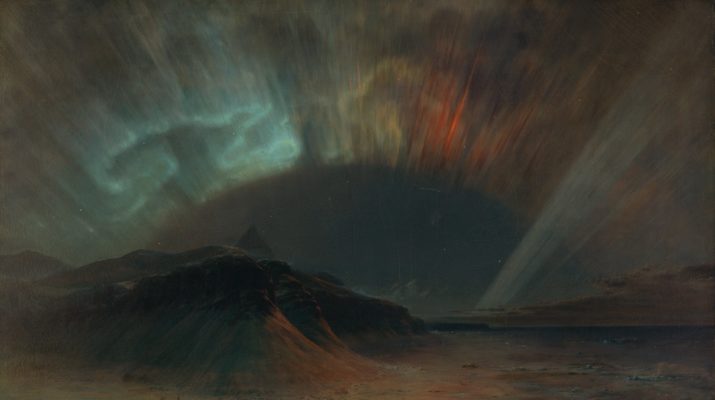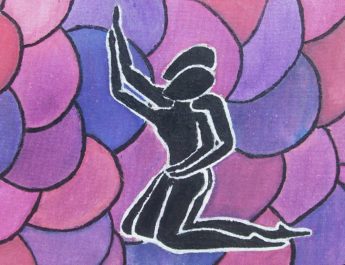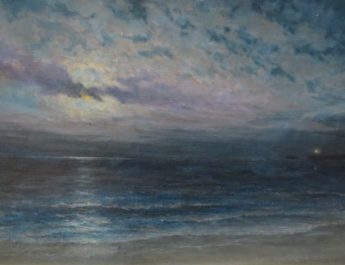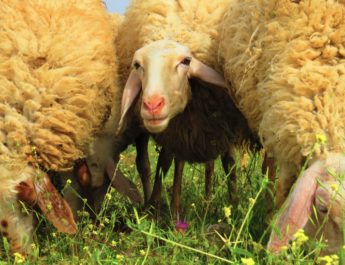Psalm 104:1-9, 24, 35c
Ordinary B47
1 BlessA the Lord,B O my soul.C
A “bless” = barak. This is to kneel, to bless. It is blessing God as part of worship and adoration or blessing humans to help them. It can be used as a euphemism to say curse God.
B “Lord” = YHVH. From havah (to be, become) or hayah (to come to pass, become, be). This is the name of the God of Israel, the self-existent and eternal one, the tetragrammaton. This pronunciation has been lost to time so “Lord” is generally used in its place.
C “soul” = nephesh. Related to naphash (to refresh or be refreshed). This is soul, self, person, emotion. It is a breathing creature. Can also refer to appetites and desires.
O Lord my God,D you are veryE great.F
You are clothed withG honorH and majesty,I
D “God” = Elohim.
E “very” = meod. Perhaps from the same as uwd (firebrand, a poker). This is very, greatly, exceedingly. It can also mean vehemence, force, abundance.
F “are…great” = gadal. This is to grow up, become great, become wealthy – to advance. The root meaning may be to twist in the sense of the process of growing.
G “clothed with” = labash. This is to wrap around, which implies clothing oneself or someone else. This is wrapping around in a literal or figurative way.
H “honor” = hod. This is grandeur, beauty, glory, honor, or authority. It emphasizes a form or appearance with gravitas.
I “majesty” = hadar. From hadar (to honor or adorn; majestic, respected, glorious; to favor or honor; to be proud). This is ornament, splendor, beauty, dignity, majesty, magnificence, and glory.
2 wrapped inJ lightK as with a garment.L
J “wrapped in” = atah. 17x in OT. This is to wrap, cover, veil, be clad, turn aside.
K “light” = or. From or (to be or become light). This is light, sun, sunshine, dawn, or daylight. Figuratively, it can refer to light from instruction, light of a face (that is to say one that is cheerful or finds favor). It can refer to prosperity or salvation; a light that guides, a light eternal from Zion.
L “garment” = salmah. 16x in OT. From simlah (mantle, clothes, wrapper); perhaps from semel (image, figure, likeness). This is the same word as simlah with the letters transposed. So, this is clothing, a cloak, or mantle.
You stretch outM the heavensN like a tent,O
M “stretch out” = natah. This is to stretch or spread out, to extend, or bend. In can also imply moral deflection.
N “heavens” = shamayim. Root may mean being lofty. This is sky, the air, or heaven. It is in a dual noun form so this might refer to the part of the sky where the clouds move on the one hand and the part beyond that where the sun, moon, and stars are on the other hand.
O “tent” = yeriah. From yara (to tremble, fear, quiver). This is a hanging curtain – a tent curtain that can shake.
3 you set the beamsP of your chambersQ on the waters,R
P “set the beams” = qarah. This is to encounter, usually unintentionally. It can also mean to happen or to lay wood for a floor or roof.
Q “chambers” = aliyyah. 19x in OT. From alah (to go up, climb, approach, bring; to be high or actively climb; can be literal or figurative). This is a lofty place. So, it could be stairs, an upstairs room, or a chamber on the roof. It could also be an ascent or the sky.
R “waters” = mayim. This is water, waters, or waterway in a general sense. Figuratively, it can also mean juice, urine, or semen.
you makeS the cloudsT your chariot,U
S “make” = sum. This is to put or place in a literal or figurative sense. It can be appoint, care, change, make, and may other things.
T “clouds” = ab. Perhaps from uwb (to be a think or dark cloud, a cloud covering). This is a dark or thick cloud that can envelope in darkness. It can also refer to a copse or to clay.
U “chariot” = rekub. 1x in OT. From rakab (to ride an animal or in some vehicle; also, bringing on a horse). This is a chariot.
you rideV on the wingsW of the wind,X
V “ride” = halak. This is go, come, walk. It is walk literally and figuratively and includes people and animals. It can be used figuratively for one’s moral life – how we walk according to God’s way or against it. It can also refer to the walk of life as in the course one’s life takes, the choices we make, etc.
W “wings” = kanaph. This is wing, edge, corner, extremity. It can also be a flap or fold of a garment or the pinnacle of a building.
X “wind” = ruach. This is breath, wind, air, cool, spirit. This is wind, which resembles the breath and so this can be used figuratively for life itself or being frail/mortal/impermanent. It can refer to the air of the sky or the spirit.
4 you makeY the winds your messengers,Z
fireAA and flameBB your ministers.CC
Y “make” = asah. This is to make, do, act, appoint, become in many senses.
Z “messengers” = malak. This is a messenger, an angel, or a deputy of some kind. Can be used for human messengers literally or for prophets, priests, or teachers as messengers of God. Also used for supernatural messengers i.e. angels.
AA “fire” = esh. This is fire, burning, flaming, hot. It is fire in a literal or figurative sense.
BB “flame” = lahat. 11x in OT. This is to set on fire, burn, kindle, be ablaze, consume.
CC “ministers” = sharath. This is ministering, serving, or waiting on. It can refer to one offering service as a worshipper or one serving as a servant.
5 You setDD the earthEE on its foundations,FF
so that it shall neverGG be shaken.HH
DD “set” = yasad. This is to establish, appoint, instruct. It is to set in a literal or figurative sense. Also means to sit down together and so to consult or take counsel.
EE “earth” = erets. Root may mean to be firm. This is earth, ground, field land, or country.
FF “foundations” = makon. 17x in OT. From kun (properly, in a perpendicular position; literally, to establish, fix, fasten, prepare; figuratively, it is certainty, to be firm, faithfulness, render sure or prosperous). This is a foundation, fixture, basis. It can also be a place or abode as somewhere that is established.
GG “never” = bal…olam + ad. Bal is from balah (to grow old, wear out, consume, waste, enjoy, fail, decay). This is not, lest, neither. Properly, it refers to a failure, so it implies nothing or not at all. Olam is a long scope of time whether in the past (antiquity, ancient time) or in the future (eternal, everlasting). Ad is from adah (to advance or continue; to take away or remove; adorning oneself with ornaments). This is old, perpetuity, eternity. It is a duration going back or forward.
HH “be shaken” = mot. This is to shake, slip, falter, stagger, move, fall, give way, waver, be carried.
6 You coverII it with the deepJJ as with a garment;KK
the waters stoodLL above the mountains.MM
II “cover” = kasah. This is to cover, conceal, overwhelm. It is to cover as clothes do or to hide a secret.
JJ “deep” = tehom. Perhaps from hum (to roar, murmur, cause an uproar, agitate; to defeat in battle, destroy). This is the deep or the abyss. Either understood as a formless empty place of nothingness or as a place of confusion filled with water – the deep the feeds the waters of the earth.
KK “garment” = lebush. Related to “clothed with” in v1. From labash (see note G above). This is clothing literally or figuratively. It can be used as a euphemism for a wife.
LL “stood” = amad. This is to stand up in a literal or figurative sense. So it can be establish, continue, endure, take a stand, act, be a servant, stand still, remain, stand against an enemy.
MM “mountains” = har. From harar (hill or mountain). This is mountain, hill, hilly region.
7 At your rebukeNN they flee;OO
at the soundPP of your thunderQQ they take to flight.RR
NN “rebuke” = gearah. 15x in OT. From gaar (to rebuke, corrupt, or chide). This is a rebuke, reproof, or threat.
OO “flee” = nus. This is to flee, vanish away, hide, escape, be displayed.
PP “sound” = qol. This is a sound, used often for human voices. Also used when God speaks or angels, animals or instruments. It can be a cry or a noise, thunder or earthquakes and so on.
QQ “thunder” = raam. 6x in OT. Perhaps from raam (to trouble, be agitated, irritated, angered; a peal of thunder). This is thunder (the noun).
RR “take to flight” = chaphaz. 9x in OT. This is hurry or alarm. It is something that begins with a start so it can mean to hurry away or to panic, tremble, fear.
8 They rose upSS to the mountains, ran downTT to the valleysUU
to the placeVV that you appointedWW for them.
SS “rose up” = alah. Related to “chambers” in v3. See note Q above.
TT “ran down” = yarad. This is to go down, descend; going down in a literal or figurative sense. It can be going to the shore or a boundary, bringing down an enemy.
UU “valleys” = biqah. From baqa (to divide, split open, tear, breach, break open, dash to pieces). This is a valley or plain. Properly, it refers to a place where the mountains have split – a wide, flat valley between them.
VV “place” = maqom. From qum(to arise, stand, accomplish, establish, abide; rising against, getting up after being sick or asleep, arising from one state to another, becoming powerful, or rising for action; standing in a figurative sense). This is a standing, which is to say a spot or space a place. It can also refer to a locality or a physical/mental condition. HaMaqom is also a Jewish name for God – the place, i.e. the Omnipresent One.
WW “appointed” = yasad. Same as “set” in v5. See note DD above.
9 You setXX a boundaryYY that they may notZZ pass,AAA
so that they might not againBBB cover the earth.
XX “set” = sum. Same as “make” in v3. See note S above.
YY “boundary” = gebul. Perhaps from gabal (to border, twist like rope). This is boundary, limit, coast, space. Properly, it is a line that is twisted, which implies a boundary and, by extension, the boundaries of a territory or other enclosed space.
ZZ “not” = bal. Same as “never” in v5. See note GG above.
AAA “pass” = abar. This is to pass over or cross over. It is used for transitions, whether literal or figurative. It can also mean to escape, alienate, or fail. This is the root verb from which “Hebrew” is drawn.
BBB “again” = shub. To turn back, return, turn away – literally or figuratively. Doesn’t necessarily imply going back to where you started from. This is also the root verb for the Hebrew word for repentance “teshubah.”
24 O Lord, how manifold areCCC your works!DDD
In wisdomEEE you have madeFFF them all;
the earth is fullGGG of your creatures.HHH
CCC “manifold are” = rabab. 13x in OT. This is to increase, multiply, abound.
DDD “works” = maaseh. Related to “make” in v4. From asah (see note Y above). This is a word – any action whether positive or negative. It can also be a transaction, construction, activity, property, or something that is produced.
EEE “wisdom” = chokmah. From chakam (to be wise or teach wisdom; this is wisdom in thought, word, or action). This is wisdom, wit, or skillfulness.
FFF “made” = asah. Same as “make” in v4. See note Y above.
GGG “is full” = male. This is fill, satisfy, replenish, accomplish, fulfill, confirm, or consecrate. It is fill in a literal or figurative sense.
HHH “creatures” = qinyan. 10x in OT. From qanah (to get, acquire, purchase, move to jealousy, buyer, keep cattle). This is possession, substance, creation, wealth.
35 Let sinnersIII be consumedJJJ from the earth,
and let the wickedKKK be no more.
Bless the Lord, O my soul.
PraiseLLL the Lord!MMM
III “sinners” = chatta. 19x in OT. From chata (to miss, sin, carry blame, lack). This is sinful or sinner. It is a criminal or someone who is seen as guilty.
JJJ “consumed” = tamam. This is to finish or accomplish. It is to make perfect, demonstrate that you are upright, consume or cease. It is to complete in a literal or figurative sense, positive or negative.
KKK “wicked” = rasha. This is morally wrong so it refers to someone who is actively bad as wicked, criminal, an evil person, offender, condemned, or ungodly.
LLL “praise” = halal. This is to be clear – it originally referred to a sound, then a color. It was to shine and then make a show or boast then to rave. In a causative sense it came to mean celebrate, give glory, sing praise, or be worth of praise. Because of the celebratory nature of the word, it could also mean to give in marriage. This is where Hallelujah comes from.
MMM “Lord” = Yah. Related to “Lord” in v1. From YHVH (see note B above). This is Lord or God – a shortened form of God’s most holy name.
Image credit: “Aurora Borealis” by Frederic Edwin Church, 1865.




